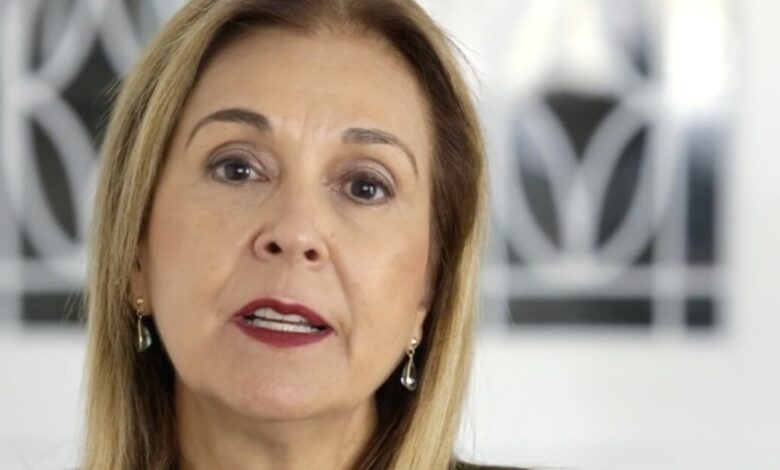9 Humanities Majors Are On the Chopping Block at Marymount U.

[ad_1]
Marymount University, in Virginia, plans to make a sharp turn away from the humanities, eliminating nine liberal-arts majors for undergraduate students. The move highlights tough decisions that many colleges are making in a challenging financial environment, as well as a broader debate about the kind of education colleges should offer.
The plan, backed by Marymount President Irma Becerra, would sunset majors in English, math, economics, philosophy, and the arts, among others. The cuts would affect one-sixth of all undergraduate majors offered at Marymount. Becerra submitted her plan on Wednesday to the university’s Board of Trustees, which will make a final decision on February 24, according to emails shared with The Chronicle.
Many faculty members say the president’s decision raises concerns about whether the university is still committed to the liberal arts at all. They also question whether senior administrators are respecting shared governance and listening to the perspectives of faculty, students, and alumni, many of whom expressed doubts about the plan.
The university’s Academic Policy, Budget, and Planning Committee — whose membership includes two faculty members from each of its three colleges, the dean of each college, and other administrators — first proposed eliminating the nine majors.
Becerra rejected recommendations from the Faculty Council to keep seven of the majors and modify six of them. The ideas outlined by the committee “more closely align with the strategic goals of the institution,” Becerra wrote in a letter to the Faculty Council’s president.
“True to our mission, all university programs will continue to be grounded in the liberal arts and focused on the education of the whole person,” Becerra wrote, “but MU cannot financially sustain offering majors with consistently low enrollment, low graduation rates, and lack of potential for growth.”
Marymount’s Student Government Association and the American Historical Association sent letters to Becerra, urging her to reverse course and preserve the majors. Some alumni started an online petition.
“Cutting portions of the School of Humanities as well as math and art programs would be detrimental to the diversity of our student body,” wrote Ashly Trejo Mejia, Marymount’s student-government president, in her letter. “We fear that removing programs will alter the foundation and identity Marymount University was built on.”
Even though the cuts aren’t official until the board signs off, students in the affected majors received an email on Thursday from Stephanie Ellis Foster, the university’s vice provost, informing them that their programs were being phased out.
“What this means is that we will not accept new students in these programs but we are committed to continue to offer classes until all current students graduate,” Foster wrote in the email to affected students and shared with The Chronicle. “We have made arrangements to provide the required courses for your major [eliminated majors] without disruption.”
Mejia wrote in her letter to Becerra that alumni and current students are concerned that the president’s decision will weaken the perception of their degrees.
“Current and future alumni want to be proud of their alma mater and they fear that with this action their success will be hindered by a weakened perception of their MU education from a program that no longer exists,” Mejia wrote.
Ariane Economos, an associate professor of philosophy who serves as director of the School of Humanities and the liberal-arts core curriculum, said that Marymount faculty largely support keeping the programs. The Faculty Council voted 88-49, with seven abstentions, to modify the curriculum changes in order to keep seven of the majors, according to meeting minutes.
“I wish our administration would respect the role of faculty governance in determining the curriculum,” Economos said.
Economos said the recommendations from the committee are based on the number of students enrolled in each major, which she said doesn’t provide a complete picture of the value of those programs.
Economos created a “data-informed” report that described some of the other factors that she thought Marymount leaders should consider — including programs that are available at the university’s peer institutions; programs at R2 universities, which Marymount aspires to be; credit hours generated by programs; effects on student recruitment and retention; the impact on Marymount’s reputation; and the contributions of the majors to the university’s overall mission.
“If they want to change the mission, then say that and say what that change is,” Economos said. “But getting rid of theology and religious studies at a Catholic university, that doesn’t fit with the mission.”
Economos calculated, based on average enrollment in the nine majors over the past five years and the results of a survey by the School of Humanities asking whether students would leave the university without those majors, that Marymount could lose as much as $2.74 million in tuition, room, and board revenue.
In an emailed statement, Marymount spokesperson Nicholas Munson wrote that Marymount’s mission is “unchanged,” but that the institution would be making changes “to better position the university for long-term growth and success.” He said these specific changes were “not financially driven” but would allow the university “to redeploy resources” toward majors with growing student interest.
“We believe investing in programs that appeal to students and prepare them for highly sought-after professions is not only our mission but our responsibility,” Munson said.
[ad_2]
Source link






